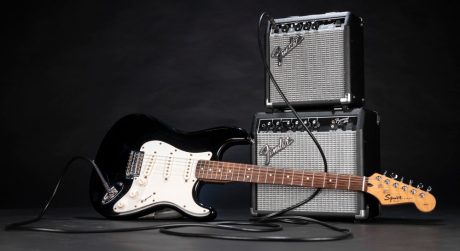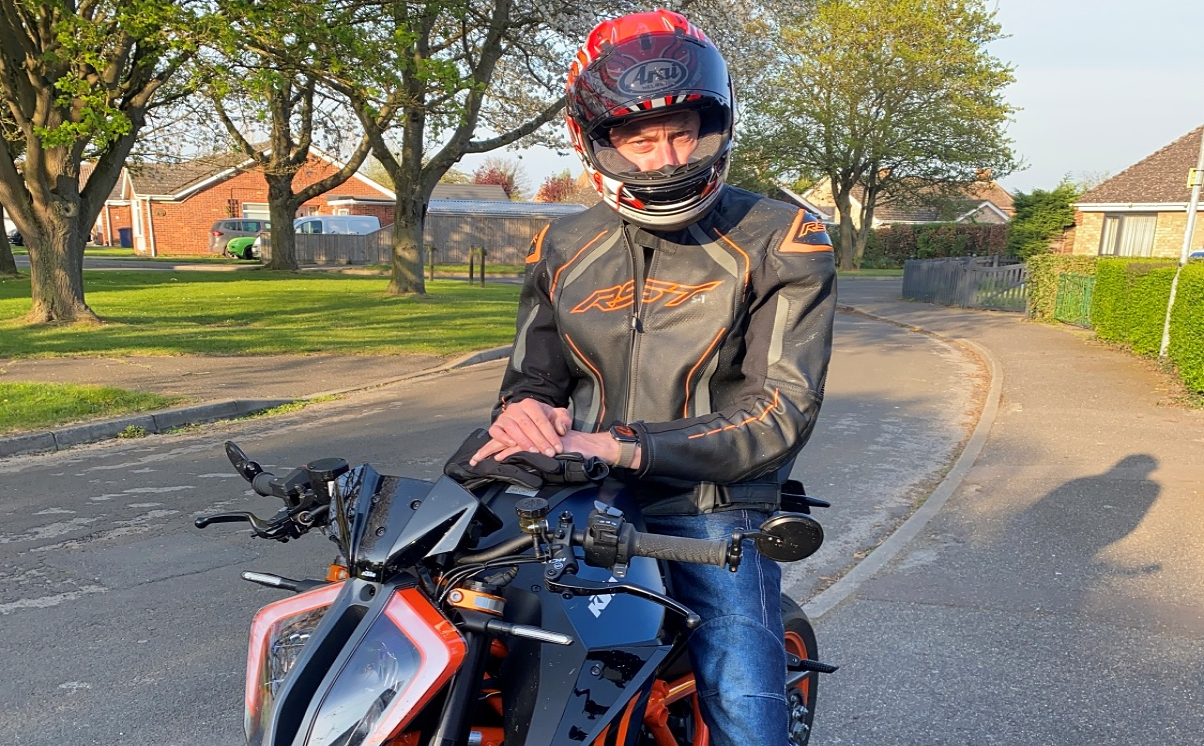BMJ is a gifted artist and musician who sustained a serious traumatic brain injury following a collision with a car in 2017. Despite the insurance company of the driver disputing liability, partner Stephanie Clarke helped BMJ secure an £8.5m settlement that will enable him to buy his own adapted property and pay for the treatment and therapy he will require for the rest of his life.
Stephanie Clarke and senior paralegal Helena Khullar review our client BMJ’s claim and rehabilitation journey.
BMJ’s background and injury
BMJ has a close family unit with whom he shares a passion for art and music. He is a gifted artist who, before his accident, had exhibited at renowned art exhibitions around the world. BMJ is also extremely musically talented, with a remarkable ability to master complex musical scores and compositions quickly.
BMJ had been wheeling his bicycle across Lea Bridge Road in 2017 when he was struck by the first defendant’s car.
After the collision, BMJ was treated at the scene by the London Air Ambulance and then taken to the Royal London Hospital. He had sustained a serious brain injury and was initially in a vegetative state. It was unclear at first whether he would survive.
Hospital treatment
While BMJ was at the Royal London Hospital, his family visited him on a daily basis. They spent six hours with him each day– playing him music, reading books to him, showing him photos and holding his hand. BMJ was then transferred to the Homerton Hospital a month after the accident. BMJ’s family visited him in hospital whenever they could and would bring some of his musical instruments. They spent a lot of time talking to BMJ to support his memory and orientation and assisting him with personal care.
After spending two months at the Homerton, BMJ was admitted to the Royal Hospital for Neuro-disability, where he emerged from his minimally conscious state. BMJ started to make progress with his rehabilitation and particularly enjoyed music therapy. As a result of the injury, BMJ had a severe expressive communication disorder and developed behavioural difficulties when he could not be understood.
BMJ was transferred to the Queen Elizabeth Foundation, Banstead (QEF), where his family visited him daily. His parents visited him 201 times throughout his eight month stay at QEF. They would play music and read to him, show him photos, hold his hand, talk to him and bring in familiar objects from home. They also supported him with playing various instruments. Due in no small part to his family’s tireless support and encouragement, BMJ started to make excellent progress, with his awareness and engagement markedly improving.
BMJ was then transferred back to the Royal Hospital for Neuro-disability. He enjoyed creating art in the art room at the hospital and made some brilliant work. He was also involved in music composition where he worked with his father and mother and would be asked for his creative choices on aspects such as time signature, key, chord and number of beats. BMJ would choose the notes within each bar to build a melody and would then be given choices regarding instrumentation. This was a painstaking process, but it resulted in BMJ composing an excellent piece of music, which went on to win a prestigious award.
During lockdown, BMJ’s family face-timed him daily. Despite BMJ’s severe communication disorder, they managed to work together to build BMJ a guitar from choices provided to him by his father, working within a budget set by his mother who acted as project manager.
Following his accident, BMJ is wheelchair-reliant and needs two-to-one care 24 hours a day.
Instruction of Stewarts
Shortly after the accident, BMJ’s family instructed Stephanie Clarke to investigate a personal injury claim. The defendant solicitors acting for the driver’s insurer denied liability and failed to engage under the rehabilitation code. Stephanie had no choice but to issue proceedings as BMJ’s opponents refused to make any interim payments to fund his rehabilitation.
Liability was finally resolved at a joint settlement meeting in 2020. The defendants’ position was so fierce that it was not until the liability approval hearing in 2020 that the first interim payment of £50,000 was made to BMJ.
The defendants wanted BMJ to move to a residential care home because he exhibited periods of agitated behaviour while an in-patient in hospital. However, his family saw that BMJ had retained a sufficient level of insight and intelligence that his carers had underestimated. BMJ had responded best at QEF because he had been supported by carers with psychology or physiotherapy backgrounds who were able to understand why he was becoming agitated.
Stephanie successfully applied for an interim payment order in 2020. The defendants were ordered to make a further interim payment of £150,000 to BMJ and to pay £20,000 towards the costs of the application.
BMJ’s treating team determined in 2021 that moving to the community for a trial period would be in his best interests. BMJ’s team and family were of the view that moving to a care home would institutionalise him, whereas a bespoke care package would allow him to maximise his recovery and live a more meaningful life. Despite this, the defendants strongly opposed the move, refusing to make a further interim payment.
Faced with such vehement opposition, Stephanie made a second interim payment application to the court, which again found in BMJ’s favour. The defendants were ordered to make a further interim payment of £400,000 and pay the costs of the application.
Transition to the community
As a result of this successful interim payment application, BMJ was able to move to a rented house with a beautiful garden located near his family. Bespoke adaptations were carried out so that the property was suitable for BMJ’s needs. The interim payments also allowed BMJ to continue to have case management input, as well as providing funding for a support worker team, physiotherapy, hydrotherapy, speech and language therapy, occupational therapy, neuropsychology and music therapy.
BMJ was discharged to his new home and began flourishing. Having a bespoke team and specialist input around BMJ gave him more independence over his day-to-day life and enabled him to forge a good rapport with his care team. Finally out of hospital and with the tools to make his own decisions, BMJ at last had choice over what he watched, what he did and where he went. His passion for music thrived as BMJ had the freedom and support to continue to listen to and compose music and create his works of art. Once settled into his new home, BMJ was noticeably much calmer than he had been in hospital.
Settlement
Liability was settled on a 60/40 basis in favour of BMJ at a joint settlement meeting before any trial was scheduled to determine liability.
Stephanie Clarke, instructing Rob Weir KC at Devereux Chambers as counsel, secured an £8.5m lump sum settlement for BMJ at a further joint settlement meeting. This reflected the deduction for contributory negligence (so BMJ’s settlement would have been approximately £14.2m on a full liability basis). Stephanie also recovered a periodical payments order at 60% of agency care costs rather than direct employment. The size of the settlement was particularly gratifying given that it was achieved against such difficult opponents.
Life beyond injury and testimonial
BMJ’s settlement will enable him to buy his own house and fund the care, therapies and equipment he will need going forward. The settlement gives BMJ financial security and independence and will enable him to continue to make and appreciate art and music on his own terms.
BMJ’s father said:
“It is clearly a relief for us that the supremely demanding legal aspects of BMJ’s situation are now done and dusted. This has been the most extraordinary five years of our lives, and a period of time that we would not wish on anybody. But despite that we are and will be forever grateful for all that Stewarts have done to enable BMJ to have a chance to build something back from the shattered ruins of his life.
“No one would choose, however disadvantaged they might be due their own circumstances, to swap their life for BMJ’s despite his award. But the financial settlement you managed to achieve for BMJ has given him the best possible opportunity of making whatever his still remarkably undaunted spirit can of what he has left. We got the best settlement for BMJ we could have hoped for and his financial security is something we no longer have to worry about.
“BMJ is now in a far better place than had you not been involved and now has the prospect of an as enjoyable and fulfilling life as is possible given the extent of his injuries. We are very grateful for all the efforts of you and your team over the five years of your involvement in BMJ’s case. A huge thank you to you all for what you have done for BMJ.”
Subscribe – In order to receive our news straight to your inbox, subscribe here. Our newsletters are sent out once a month.






